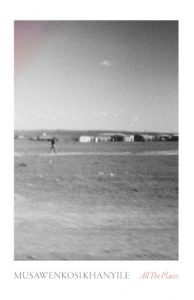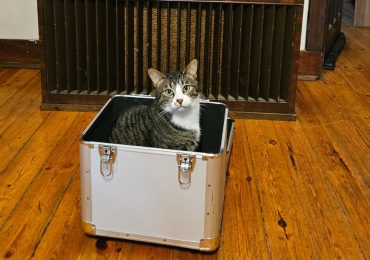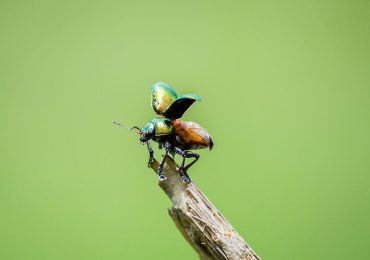The Johannesburg Review of Books presents three poems by Musawenkosi Khanyile.
Habeni
You learn to tell the direction of the wind
during your walks by the side of the gravel road,
and that streams are running taps
where a cow and a boy might come to drink at the same time.
You also learn that a girl’s hips are a good resting place for your hands,
and that kissing her for a long time by the river leaves you with memories
that remain long after she is no more,
shoved against a wall by an angry boyfriend years later,
to die in a government hospital.
And since her name was Nomvula,
you remember that one day on the mountain you saw the rain coming
and outran it.
But nobody believed that you could outrun the rain.
To Nquthu
On my way to Nquthu where love is calling me,
the taxi hums its way up the hills of Ndundulu,
passing markets where women make a living selling fruit.
Their breasts dance up and down whenever a car stops:
the share of profit relies on whoever arrives first.
Before we leave Mpangeni, a woman stops to sell us ice cream.
The hurt in her eyes speaks of the many lives like hers
that are carried through days by little earnings.
At the end of each prayer reality awaits
where daily bread is not given, but sweated for.
We drive past a girl grappling with a water pump
and cows eating grass behind mud houses.
I know houses like these that are eaten away by heavy rains
and have fingerprints left on their walls
by the hands that built them.
My leg is sore by the time we reach Nquthu,
a town with only one set of traffic lights.
A boy holding a live chicken by its legs crosses the road.
I’m now thinking of all the lengths I will go to
for love.
Mowbray
After twenty-one days of moving from one b&b to another,
he is finally handed the keys to his flat: a two-bedroom apartment
in Station Road smelling of paint. After moving his bags inside
and gathering his breath, he looks around the space:
Rooms stripped of furniture. Empty rooms like himself,
like the people who come to talk to him all day,
patients who sit next to him and tell him how empty they feel.
How many times has he wondered what emptiness looks like?
For two nights he sleeps in the flat without curtains
and feels exposed in the morning when darkness can no longer hide him.
At work, he hides everything relentlessly,
especially when he sits crossing his legs, wearing a white shirt,
giving an occasional Mmm here and there,
pretending to know what fills up a hollow heart.
From All The Places, uHlanga Press, 2019, © Musawenkosi Khanyile

- Born in 1991, Musawenkosi Khanyile hails from Nseleni, KwaZulu-Natal and holds a Master’s in Clinical Psychology (University of Zululand) and a Master’s in Creative Writing (University of the Western Cape). His chapbook, The Internal Saboteur, appears in the African Poetry Book Fund’s 2019 New-Generation African Poets: A Chapbook Box Set (Sita). He lives in Cape Town.





